Systemic Silence: Addressing Racial Inequity in Black Maternal Mental Health
Published in Social Sciences, Sustainability, and Public Health
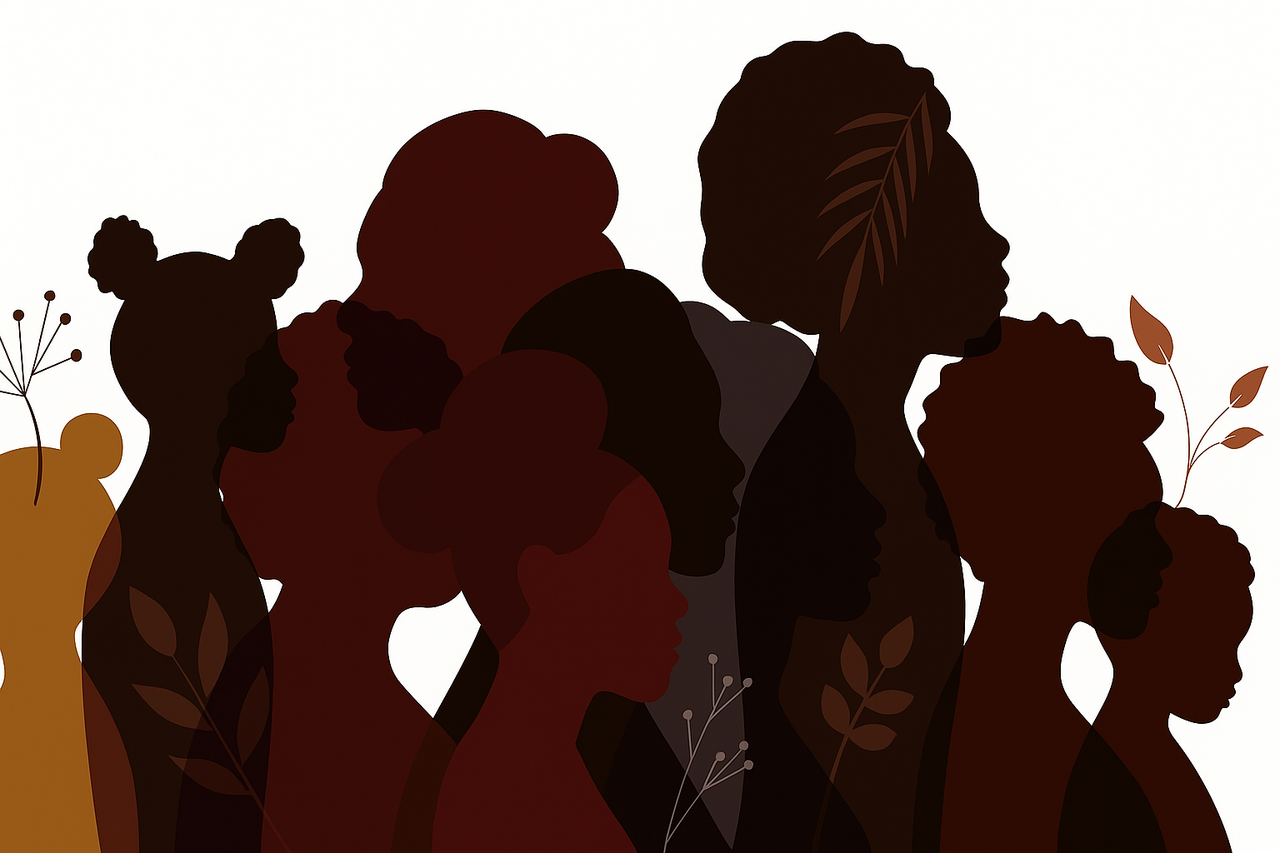
This podcast was created as a response to Black Maternal Mental Health Week UK 2025 (22nd - 28th September).
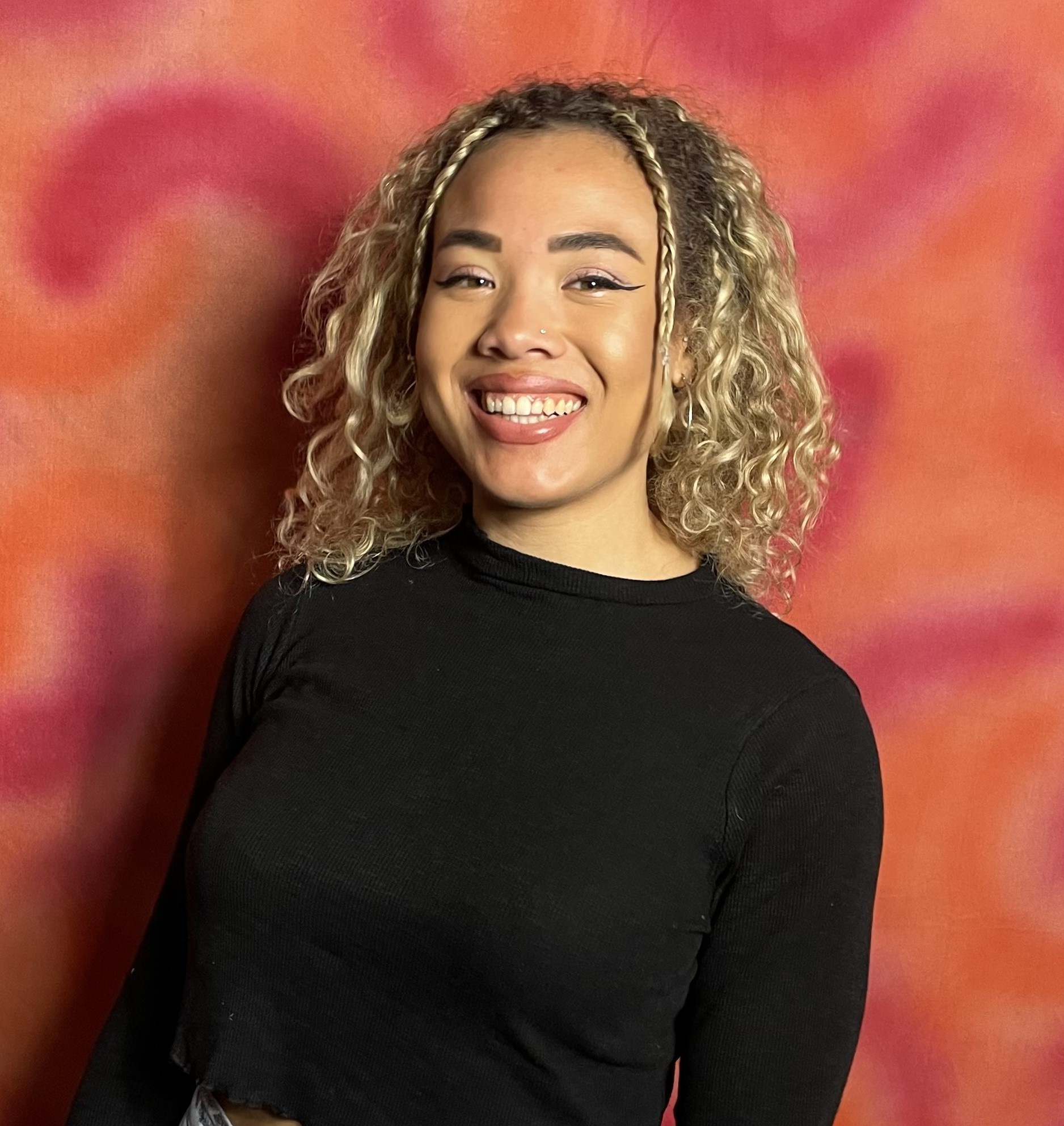
(Left) India Sapsed-Foster, Associate Publisher and UK Leader of Springer Nature's Black Employee Network (SN BEN)
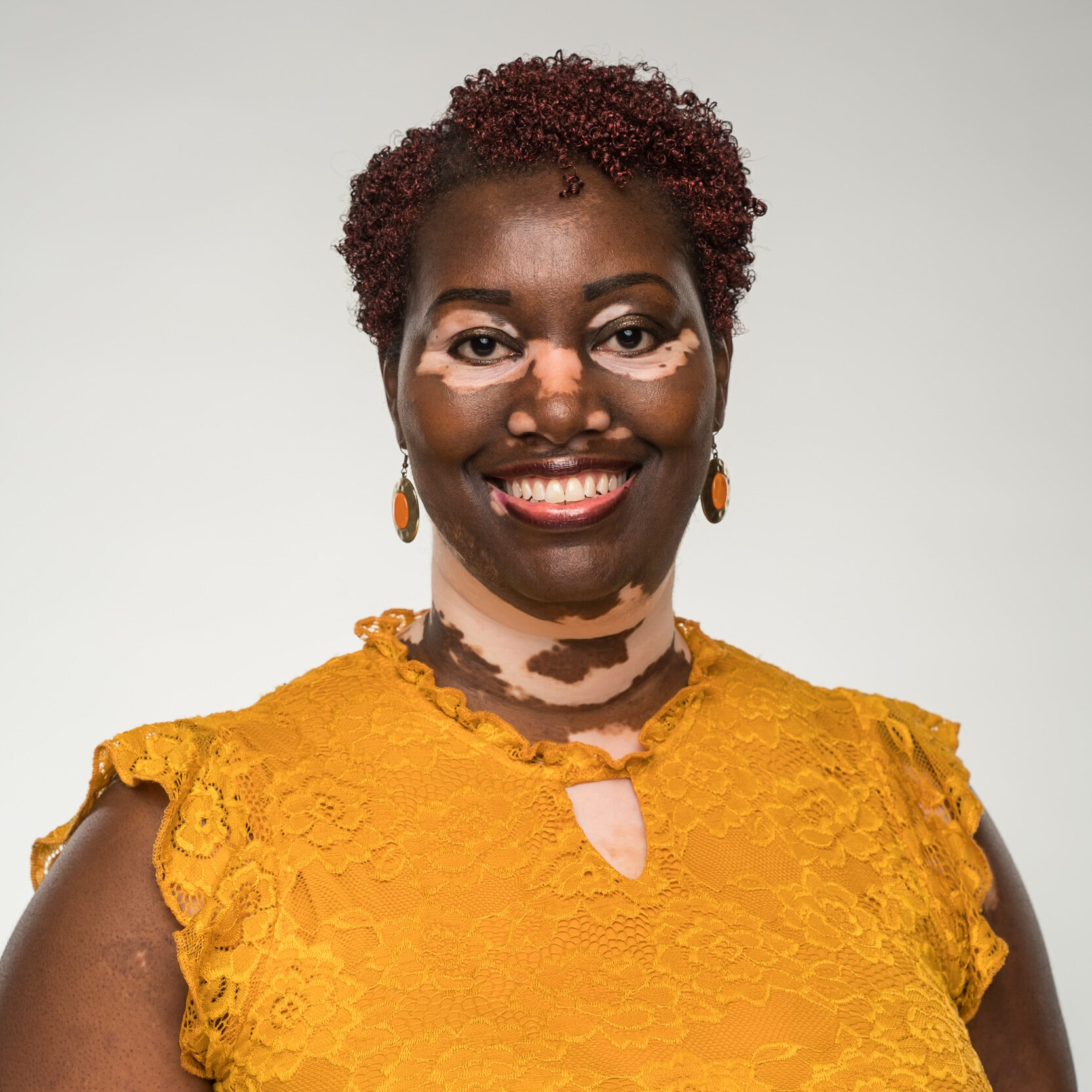 (Right) Irene Aninye, Chief Science Officer, Society for Women's Health Research
(Right) Irene Aninye, Chief Science Officer, Society for Women's Health Research
Podcast editor: Isaac Nieman, Senior Video Content Creator, Caprice Holdings. For freelance work please contact isaacnieman@hotmail.com
Explore India & Irene's 2024 interview on Springer Nature's Research Communities.
Transcript:
India Sapsed-Foster: Hi everyone and welcome to this special edition podcast. It's me, India here and I'm joined by Dr Irene Aninye, Chief Science Officer at the Society for Women's Health Research. I've previously worked with Irene on another project which you can find in the link below.
It's the first day of Black Maternal Mental Health Week UK 2025 which takes place from the 22nd to the 28th of September. So we're here to talk about this really important issue especially in today's climate.
This episode is brought to you as part of Springer Nature's SDG3 newsletter and is a collaboration between the Society of Women's Health Research, the journal Biology of Sex Differences and Springer Nature's Black Employee Network as part of our DEI initiatives.
Our discussion today will explore the unique and critical challenges that black mothers face when it comes to accessing healthcare, particularly mental health support, and how we can drive meaningful change.
Irene leads the Society for Women's Health Research scientific programmes driving efforts to increase awareness and investment in research on biological sex differences and health conditions that disproportionately or uniquely affect women.
Her work turns evidence into action, producing science-based, patient-centred policy solutions.
Irene Aninye: Thank you so much, India. It's great to be here. That was quite a bio. It's always different to hear it than when you type it.
But as you mentioned, I've been at the Society for Women's Health Research for almost five years now, and I've really enjoyed engaging this work to address gaps in research, care, and policy concerning women's health.
And so I'm really excited about our conversation about Black Maternal Health Week because it's about health and not in shifting from morbidity and mortality, which is what we often hear when it comes to maternal health and shifting it into a health space and not a deficit space.
ISF: In light of SDG 3, which is good health and well-being, why is Black Maternal Mental Health Week so crucial? What do you think it reveals about the broader maternal health system's failure to meet the needs of Black women in particular?
IA: Well, anytime that we can shed light on women's health issues and mental health issues, we have to seize the moment. So I think that's why it's so important. I'm glad that the UK recognizes this intersection between maternal health, black health for black women, and mental health.
And so we see there are gaps in women's health because women in the U.S. were systematically left out of clinical research. Just until about 35 years ago and about 50 years ago, there was actually federal guidance that excluded women of childbearing age from participating in clinical studies.
And while there were challenges and fears around what would happen to mom or baby, we have to recognise as scientists, we're charged to do the hard thing when it comes to research. We have to ask the hard questions.
We need to determine how we can safely and rigorously address those questions scientifically with keeping in mind our goals, but also protecting the populations that they're designed to serve. And so we see a lot of gaps in women's health.
This was in the US, but across the globe. Engaging women in research and addressing women's health gaps is something that we see across the globe. And so when it comes to Black women's health, there was also systemic exclusion, mishandling, and barriers to accessing care that have really contributed to this reduced engagement and trust for many women of color, particularly black women.
And then on the side of, as you mentioned, these three intersections, there's the mental health gaps. And mental health has long been stigmatised. We don't study it the way we should. We don't discuss it as the serious health topic that it is.
And so when you're now looking at the gaps in women's health and health concerning black women and other women of colour and then mental health, we really have to work to close these gaps. And it takes research, funding, innovation, and education that is specific and unique to these populations.
ISF: It's interesting, you know, to hear from your perspective being in the US, and we can sort of talk about the difference, why it's actually so much harder for black women in the US to get this healthcare.
Because here we have the National Health Service, the NHS, so we actually can access healthcare, I feel, more easily than you, especially because as black women, systemically and lower-income backgrounds, they don't have the money to pay for that insurance.
So do you think that's a reason why we're not getting enough representation and access to healthcare for them in the US?
IA: Well, that contributes, but it's very unfortunate. But well-educated, well-insured, and high-income financially secure women that are Black still have major challenges when it comes to maternal health and maternal mental health.
So while we can say sometimes there is access issues for many women, but the broader conversation is when you, even women that do have access, they have challenges navigating their care, getting the help, getting not being dismissed or ignored for the symptoms that they're sharing, being taken seriously.
And so even when there's access, as you can imagine, in the UK, where you have the national services, even with being able to go see a provider, they're still not getting the quality care that they need in order to address their healthcare needs.
ISF: And then you spoke a bit about trust in there as well. And you spoke about this. And I really enjoyed listening to you talk at the OSSD conference in Albuquerque earlier in the year in June. And you were talking about the trust and why we are underrepresented in research because we don't trust the healthcare system.
Can you talk more to that?
IA: Well, you know, when we think about healthcare and the relationship between a patient and a doctor, it requires trust and a certain level of relationship building, right? And so it's not relationship like we're buddies or pals, but health is a very personal, intimate, and a vulnerable space for everybody, for many individuals.
And so you have to be able to, one, articulate what's going on that you don't know what's going on. So I have to feel comfortable enough to say, I don't know what's going on. You may not believe me because I may not even be describing it well, but I need your help to figure this out.
And it's a journey for both the women and their healthcare providers to figure it out, right? It's not on one or the other. But the problem is when you've too many women and too many black women have gone, communicated challenges in their bodies, in their health, and been dismissed.
Or certain stereotypes, maybe you're strong, so you don't need to be, you know, you're not getting the referrals or the treatment plans that you would, you probably need. There's also been that exclusion in clinical studies.
So there's a lack of awareness as to how these studies could help you because a lot of times the studies have been communicated more and people learn about them through the harm that they've committed as opposed to the benefits.
And so there have been legitimate issues and concerns throughout our healthcare system and research and clinical trials that warrant concern. But we have to build back this trust with these patient populations, because if not, the whole scientific ecosystem is going to become halted in being able to create those advances, right?
If we do not have representation in our studies, if we do not have, because of the lack of trust, then we're not going to be able to find the answers that we need for different populations of individuals.
And so, you know, but to build trust, like any relationship, when it's broken or it's, it's frayed, it takes time. It takes time, it takes consistency, and it takes humility.
ISF: And that's a nice segue into the question of black women being more likely dismissed and misdiagnosed.
Do you see that with regard to their mental health during pregnancy? Are their mental health concerns dismissed, like misdiagnosed? Or do they not feel open enough to discuss their mental health in the black community?
You touched on the stigma of this. What could be the consequences for both mother and baby if they were dismissed, misdiagnosed, or if they just didn't mention to a healthcare professional about their mental health concerns during this pregnancy?
IA: Yeah, there are some cultural norms and stigmas surrounding mental health support at a professional level. Like I can tell you I'm stressed and I can talk to, we find in many communities and black women particularly or black communities or communities of colour that I can tell my girlfriends, I can tell, you know, maybe my cousin, my sister, people that are close to me in my circle of trust, right, that I'm having a hard day or I'm being stressed or I feel overwhelmed. They may not have the words around it, but they just might be complaining a lot more about what's going on or getting quieter. And so people notice things, but the idea of saying you need to go see somebody, that maybe just in the last couple of years is something that you might get from your friends.
If not, you just feel like I've aired it, I've blown out some steam, I've spilled the tea, you know, all these lovely colloquialisms around communicating your stressors. But it's not, there's a difference between emotional health and mental health.
And so we hear a lot about postpartum depression, but we don't talk often enough about the antenatal, prenatal portion when you are pregnant that these conditions can either get worse if you have underlying and you might not have had it diagnosed, that it can be exacerbated during pregnancy because of some of the hormonal shifts and imbalances and not just the menstrual hormonal kind of shifts, but legitimate endocrine disrupting activity in those changes that happen during pregnancy when your body is going through a major transition to manage the fact that you're growing a life on the inside of you.
And so I don't think we take, we fully understand what is going on in the body during pregnancy and recognizing that everything can shift. I mean, we see it with weight, your heart health can shift, your skin, hair, nails, your breathing and lung capacity, and as well, all the things that are going inside your mind, you know, as far as brain health and mental health.
And so when you have communities that aren't used to having these conversations, when all that stuff is happening, you don't know what's going on, you can get scared. And when society says as a black woman, you need to be strong and that they're used to seeing you in so much strength and independence, how do you tell somebody that I don't know how to handle this, that I can't seem to get myself out of this funk.
There's not enough spa days, brunches, teas, or phone calls with my girlfriends to lift this feeling. And I'm really, really, maybe I'm just really nervous because I'm pregnant. It's my first pregnancy or it's my second pregnancy and I'm worried about all these other things.
But no, some of these challenges are things that need professional assistance and help because they could mean not just depression, they could also mean anxiety, psychosis. You know, they have associate pregnancy associated OCD, pregnancy associated, you know, there's a whole slew of mental health disorders that can arise during pregnancy or postpartum.
And so, yes, we talk about postpartum depression, but I'm not postpartum, so it must not be that. So now what do I? What is it? Who do I talk to? Where do I go?
ISF: I've heard, you know, so much about postnatal depression, but not enough about women who suffer during pregnancy.
If anything, I hear, oh, you're glowing, you look so good, you know, you like everything's perfect. And then lots of women must be overlooked then.
IA: I feel like I would lean on the latter end. There is an uptake or, you know, in that there might be some increases, but I also feel like it was there.
It wasn't necessarily recognised, you know, or it wasn't diagnosed because you can only give numbers for something that someone goes in to seek help for. So if I don't go in and I don't seek medical help and they don't provide a diagnosis and ring it in my medical record, it's not counted.
And so it may look like there are a lot of black women who don't experience this and don't have these challenges. So then we're like, oh, it doesn't affect them. But again, that exclusion, the historical exclusion, the stigma, the societal norms and pressures can contribute to that.
And then just like you mentioned, the awareness. If I don't know that this is a thing, I'm always going to rack my brain for what I think it is. Because most people, when they go to the doctor, they kind of feel like they think what it is, right?
Because you have to come to a point where you feel like something is actually wrong in a way that it needs help, right? If I did had a long day and my feet really hurt, and so for the next day or two, I have pain in my foot.
I'm not going to think I need to go to the doctor. If this pain persists over the next month, I might even say it's because I just haven't rested it and it's from this one injury way back, but it might actually be something. And so likewise, that's the hard part about mood disorders, especially in a time of pregnancy, everything is changing. You are stressed. Many women, they're still trying to work, but they're waking up groggy and tired. So how do I know that it's not just because of my weight and the baby and everything that I'm so tired and that this fatigue and the sleepiness is not associated with depression?
I'm so anxious, I gotta do this and I gotta prepare for this and I gotta do that. How do I not know that this nervousness is not, that it's just nervousness versus anxiety, right? I want everything to be perfect. So I'm doing these things over and over again and they call pregnancy brain, right? Oh, you have pregnancy brain, you forgot something here. You have this brain fog.
Right. And so I'm doing things over and over again and I'm asking things over and over again. And how do I not know that this is just me being like super cautious and wanting to do it versus it might be indicating an OCD behaviour. Right. Oh, you just worried the baby will be fine. Oh, it's just that. So there's so many things going on during pregnancy that.
You can only imagine if I don't feel safe to communicate this. And every time I say something, people are like, don't worry about everything. I'll be fine. Then you are, you, you'll believe it. Or you just say, I just, I'll get over it. I'll get over it. I'll get over it.
And I can speak to, I mean, this is an audio podcast, but I'm a Black woman. People may not realise that in listening, but I can definitely say there have been many a time where I'm like, I have to keep going in my life. I just have to keep going. And you do not, in so many circles of friends, I have my tight-knit group of friends, but I remember growing up, I remember in starting my career, you did not know what was going on behind closed doors.
In many of my Black friends' homes and lives, except for your core, core tribe or group, you really didn't know what was going on. And then you find out, you're just like, wow, you were dealing with all of that at the same time. And so this is what we've conditioned the community to do. And so it is, it can be especially hard during pregnancy to manage that. And again, pregnancy being a stress test for health.
Sometimes it can spiral and it can become something chronic. What was maybe transient or here or there can become something more serious during your pregnancy or postpartum that we did not pause or we did not feel we could pause or we did pause and we weren't taken seriously.
ISF: Yeah. And actually, statistically, one in five Black mothers report that they did not
visit any healthcare professionals when they were feeling this way and having to internalise this resilience and strength that you know the perception of black women that we have to be strong all the time and you know we we need to really get out of that mindset that has been ingrained because we can show vulnerability and we should that should be respected.
IA: Oh I love that, respecting vulnerability.
ISF: In your opinion, what role does racial bias or stereotyping play in how healthcare professionals respond to Black women's mental health symptoms during the perinatal period?
IA: You know, I'd say this, for anybody who's listening, think about if you were asked to envision or think about a Black woman or describe them, what do you generally, who would you picture?
Right? Who would you think about? You're probably going to think about a powerful, strong, resilient, you know, someone in history, or even if you think about somebody in your life, you're probably like, oh, she's, she's always working hard. She's, you know, so we always think Black women are strong, Black women are resilient. These, we can own. It's, it's great. I love to be described that way, as opposed to a lazy or undereducated or something. I love to get that.
But we have to be careful when those descriptors are weaponised, right? And so because you're strong, we don't give you help. Because you're resilient, we won't support.
Right. You can figure it out without support. Right. And so these are some of the stereotypes in the biases that, you know, I'm glad that many women, myself included, have flipped them around to be things that you can wear as a badge of strength and honour.
But like you said, it's respecting vulnerability. And so it can be hard to be vulnerable. But the issue with stereotypes in general is that it nullifies your individual experience. Yes, I may appear strong, but I can't be strong all the time. Recognising also resilience is something that you're built because of turmoil and because of stress and strain. Resilience is the product of it. But you know, if you always look at these generalisations and these stereotypes, we've literally usurped personalised care. And that is what healthcare is all about. And especially mental health. As a researcher, I get it. We do our studies, we get our data, and we look for generalized results, right? Because you want to be able to, how can we take these results and implement them to a broader community? And how can we implement them to a broader population? How can they work for the most people possible?
That is great. And there is a place for that because that place says, you know, here's what moms need. Here's maybe what black moms need here or here are some of the deficits. Here are some of their social determinants. Here are the structural determinants. Here are their challenges. However, you now have to look at me.
If you say transportation and income and education and access, right, are some determinants of health. And this is what Black women experience. But now when I walk into your office, you need to find out for me, how far is this? Can I come for 14 prenatal appointments? What type of, will that, will my job allow me to take off that much work? So now you want to assess my mental health.
What are my stresses in my environment at home that will support or detract?
Right. And then also, what does that look like for me? And what is a plan towards better health in this space look like for me? And so, yes, we have all the lovely generalisations, but we have to recognize that we have to peel that away. And as providers and even as researchers have to not fall into these, it's easy to fall into these stereotypes and biases. Right. I mean, when we say Black Maternal Mental Health Week, because we're lumping in every Black woman who's a mom and the mental health.
But we have the opportunity that when we encounter an individual Black pregnant or new mom, we now have to take her as an individual and tease through all that data and tease through all those stereotypes and tease through all those barriers and say, what does she specifically need from me in this space to make sure she's getting the best care? I know we have five minutes and 10 minutes in our appointments.
But we have to do better. I can take the opportunity to share an experience that I've had with mental health challenges and going through some things. And I went to grief counselling after experiencing a traumatic death of someone that was close to me and being in session. And the counsellor was telling me.
She made the comment like, you're doing so much better than most people at your stage and you seem to be coping really well. And I remember being there thinking, I'm not. But she couldn't even pass through those layers. And maybe because while I wasn't in sessions with her, I was I was breaking down.
Right. And, you know, and I could cry on the drop of a dime. It was really hard to keep it together. But I remember there's a lot of other things going on in that season of my life that it was a challenge.
But I guess she also was maybe she was expecting me to be so resilient that she didn't peel through those layers and recognise that I was trying to be strong, but I really wasn't as strong as I was. And so she's thinking she's giving me a compliment. But I'm like, I really need more help.
ISF: Exactly. And I'm sorry, but if she's in that profession, she should know that women mask and you know that's a big thing that should be taken into consideration she she should know and not take that at face value.
IA: You would hope that people recognise it but I think it's the other thing that we have to think of while there are biases there's also some lack of awareness on the professional side right and you're as good as your training and your experience. So if you work with enough people from a particular population, like Black women in this space, you may be able to see the mask versus not. You may be able to see when their walls are still up, and when they've now become more vulnerable and are sharing, right? And so if you don't engage in this space, you will never actually be very proficient in this space. And that's another takeaway for those that are in this space.
If you want to be able to treat Black mothers or pregnant people, in their mental health, with their mental health, you have to make sure that you are engaging enough clients and patients in that population so you can actually be able to tease out. I feel like that is actually how you get out of the stereotypes and into the individual. Because when you only see two or three, they seem the same.
If you see 20 people, you are going to see the differences between those 20 people. And you will now no longer look at Black pregnant people as a homogenous population that you can just throw a stereotype on and say in a band-aid and say they'll be all better. You now see that out of these 20, I saw this kind of piece. It took me these strategies to get behind their walls for three of them. And it took this. And so now you actually get to see the nuances and realise it, for yourself, the nuances and how diverse even the Black female space is. And I think that's what we take for granted when we don't have enough exposure to a population. We rely, we have to rely on those stereotypes. But as we get more exposed, we can.
I'm West African. So my family history is Nigerian and I can look at some individuals and I can hear them or look at their names and I can tell certain tribes in their background, you must be from the North. You must, because I know enough people from that culture to differentiate, but someone who's not will look at Nigerians like I can't even tell the difference. They're all Nigerian. Right. And that's the same thing when it comes to practicing and care.
ISF: And do you think this lack of representation among the healthcare professionals that we were talking about, does that contribute to the continued neglect of black maternal mental health issues?
IA: I think there's a role that it can play. There's definitely a role that it can play because the less we know about people, the harder it is to treat them. And that's especially in the medical profession, but it's really in any profession because you have to understand people in order to provide any type of service. And I think for something as vulnerable as health, something as intimate and non-mainstream as mental health, we really do have to forge relationships.
We have to continue to push safe environments and spaces that people can feel like little by little they can come out and little by little they can share. And we have to be patient with them. That's the other piece. We have to be patient with them. We have to be a little bit more proactive and have a little bit more foresight because, and then also recognise at least in the US, there's costs to mental health care. And if people can barely pay regular health care, now you want me to come weekly because I barely go to my doctor once or twice a year. Now you want my treatment plan requires me to come or log in every week or multiple times in a week or every other week because it takes a lot of consistent touch points.
Right. And and so we also have to take that into consideration.
ISF: And I think as well, these women will, even if they can access the care, they will be much more likely to speak to someone if they, you know, from a Black or ethnic minority background themselves. So we really need to increase the representation for women in health care. It does help.
IA: I mean, studies have shown across professions, especially medical field, having that alignment to gender as well as race. So as a Black female, having a Black female doctor or having a Black doctor can change, but also a Black female on top of that. And so it's not that you can't provide good care, don't get me wrong, but there's sometimes less hurdles to jump and acknowledge safety. But there still are times where there are traumas or things that are introduced. So sometimes as a Black individual, you might not want a Black doctor, right? Because there's also conditioning that we have societally about who we feel would be a better doctor. It's unfortunate, but we have to peel away all of these barriers, all of these biases, all these stereotypes, not just for the patient side, but for the professionals.
ISF: Definitely a double-edged sword there as well, I guess, because the stigma within the black community of mental health. So maybe that's another factor if they wouldn't, they might not want to speak to a black therapist in case there's they somehow think that they might judge them.
IA: Sometimes people will post like on their doc pages, you know, certain things like the way you do language as well. Like I speak these languages or I work with these populations or they consider them more specialties, I guess sometimes or like areas of specialty.
They work with, you know, for example, with sometimes you'll see in Christian counselling or, you know, mental health professionals that also have maybe a Christian background or work in that space. So that way, if you want to come, but you also want somebody who understands your belief system and can work that in to your mental health care, they have that. So you'll see it, but it's really on an individualized basis. And it's when, as a patient, you have to do the digging to figure out what a referral is.
ISF: So finally, Irene, what steps do you think academic institutions, the NHS and policymakers must take to ensure the research on maternal mental health is inclusive, anti-racist and centred on lived experience?
IA: Well, I love the fact that, you know, even as you positioned it, it's holistic, right? We have to take all the different stakeholders. And so when it comes to like the, for example, the healthcare systems, they really need to centre the patient experience and acknowledging and then dismantling those barriers with intentionality when they are working with Black moms or black pregnant women. And it has to be intentional and compassionate, right? Being very insensitive to their needs. So you don't want to be dismissive. I think on the academic side with institutions and researchers, we have to make sure we're inclusive in our clinical trials because, again, that intentionality, if we're wanting to serve a population, we need to make sure they're represented. We need to take the time to design our studies to reach those populations to support them and to provide incentives for retention, participation and retention that promote that diverse recruitment. And so when I say provide incentives, it's not like, oh, like a carrot stick, but legitimately, if you want me to be in a study about mental health, maternal mental health, and you want me to continue to participate. Like I mentioned earlier, we talked about, you know, what does it look like to come off of work, you know, time away from work. I may have other children that need childcare, distance and location, you know, so maybe you need some work protections, right? That's on the policy side, but maybe some transportation vouchers.
Or you do some things virtually, or you take it to the community instead of saying, come to this site, you pick a site that's closer to that community or you do multi-site work that can be in the different communities to ensure that you can get people that can come and come regularly. A lot of mental health work requires, studies require multiple touch points. And so if you don't just want them to come the first time, but to continue to come, we have to think about what a retention strategy is, not just the lovely design of your research.
On the funding side, we have to invest in Black maternal health with a long-term development goal of health and well-being and equality, not just a short-term financial ROI. And so that's what I love about the SDGs. It's not, we have to stop thinking about financially, about a drug or a product or device and a profit.
And we have to think about investing where the outcome is overall health. And the person who invests may not get the financial return. The economy may get it. The community may get it. But you're really looking at a growth mindset and a development mindset and not a financial margins mindset. And so you need funders that are willing to do that. But then on the policy side, they have to hold all stakeholders accountable. They have to set national priorities. We have to set up local priorities and frameworks to get these national initiatives functional on the local level. I think it's very easy sometimes at the broader level to say we're going to do something. But then how does that trickle down and get implemented at a local level?
And not even just community-wise, but policymakers in our hospitals, in our academic institutions, these leaders, they all play a role, not just the government people, right? Think about even the policymakers, quote unquote, in our professional societies, right? That are the ones who are developing the guidelines. These guidelines need to be sensitive, right? To the needs of diverse populations. The hiring, the research funding, the allocations all need to be sensitive. Those are policymakers of sorts. They're not senators and MPs, right? But they're the ones who are doing that local regional level of policy and practice. So there's definitely roles for everybody to play.
At an institutional level and not just saying Black moms need to be aware, they need to be educated, they need to get there. We need to get to them. We need to provide systems that create safe spaces for them. We need to get services to where they're at because we've shifted the mindset of providing care, meaning you have to come to us. Before, it was like we came to the person that needed care because they're at the deficit. We historically were supposed to meet people where they were at.
Now we've gone to the place where we're centralised, Karen, you need to get to us. But I think we need to start thinking about because there are so many barriers for Black women that maybe we need to start thinking a bit more about how we can get to them instead of requiring them to get to us.
ISF: It's everywhere. It's the US, it's the UK. We really need to protect women's health and I'm really grateful for all your work and the research that you do and actually trying to change the world to make it better than it is now. So thank you so much for joining, Irene. And I'm sure we'll have another podcast, a follow-up podcast one day.
IA: This is great. Thank you for the opportunity to highlight this very important topic and looking forward to, as always, to the work with BOSD and seeing some more of the topics that you guys highlight.
Follow the Topic
-
Biology of Sex Differences

This journal is unlike any other scientific journal: articles focus on sex differences in all aspects of an individual or organism. Everything from molecules to behavior and from studies of cellular function to clinical research studies are reported in this journal.
Related Collections
With Collections, you can get published faster and increase your visibility.
Sex Differences in Metabolic Regulation and End-Organ Damage
Sex differences profoundly influence endocrine and metabolic regulation, shaping disease susceptibility, progression, and therapeutic responses. This Collection aims to highlight how hormonal and metabolic interactions contribute to sex-specific pathophysiology across a range of endocrine disorders and associated systemic complications.
Research topics of interest include mechanisms and therapies addressing hormonal and metabolic dysregulation observed in conditions such as polycystic ovary syndrome (PCOS), metabolic syndrome, diabetic nephropathy, thyroid disorders, Cushing’s syndrome, and hyperaldosteronism. Emphasis is also placed on how these disorders impact multiple organ systems including the cardiovascular and renal systems, resulting in sex-specific patterns of end-organ injury and disease progression. Original research, clinical trials, translational studies, and comprehensive reviews are welcome.
Subtopics include, but are not limited to:
- Hormonal regulation of glucose and lipid metabolism by estrogens, androgens, and progesterone
- Sex-specific metabolic adaptations in obesity, diabetes, and cardiovascular disease
- Neuroendocrine and inflammatory mechanisms linking hormones to metabolic dysregulation
- Cardiovascular and renal complications of endocrine dysfunction
- Neuroendocrine control of metabolic homeostasis
- Endocrine disorders with metabolic manifestations
- Sex-based differences in drug response and therapeutic outcomes
All submissions in this Collection undergo the journal’s standard peer review process. Similarly, all manuscripts authored by a Guest Editor(s) will be handled by the Editor-in-Chief. As an open access publication, this journal levies an article processing fee (details here). We recognize that many key stakeholders may not have access to such resources and are committed to supporting participation in this issue wherever resources are a barrier. For more information about what support may be available, please visit OA funding and support, or email OAfundingpolicy@springernature.com or the Editor-in-Chief.
Publishing Model: Open Access
Deadline: Nov 04, 2026
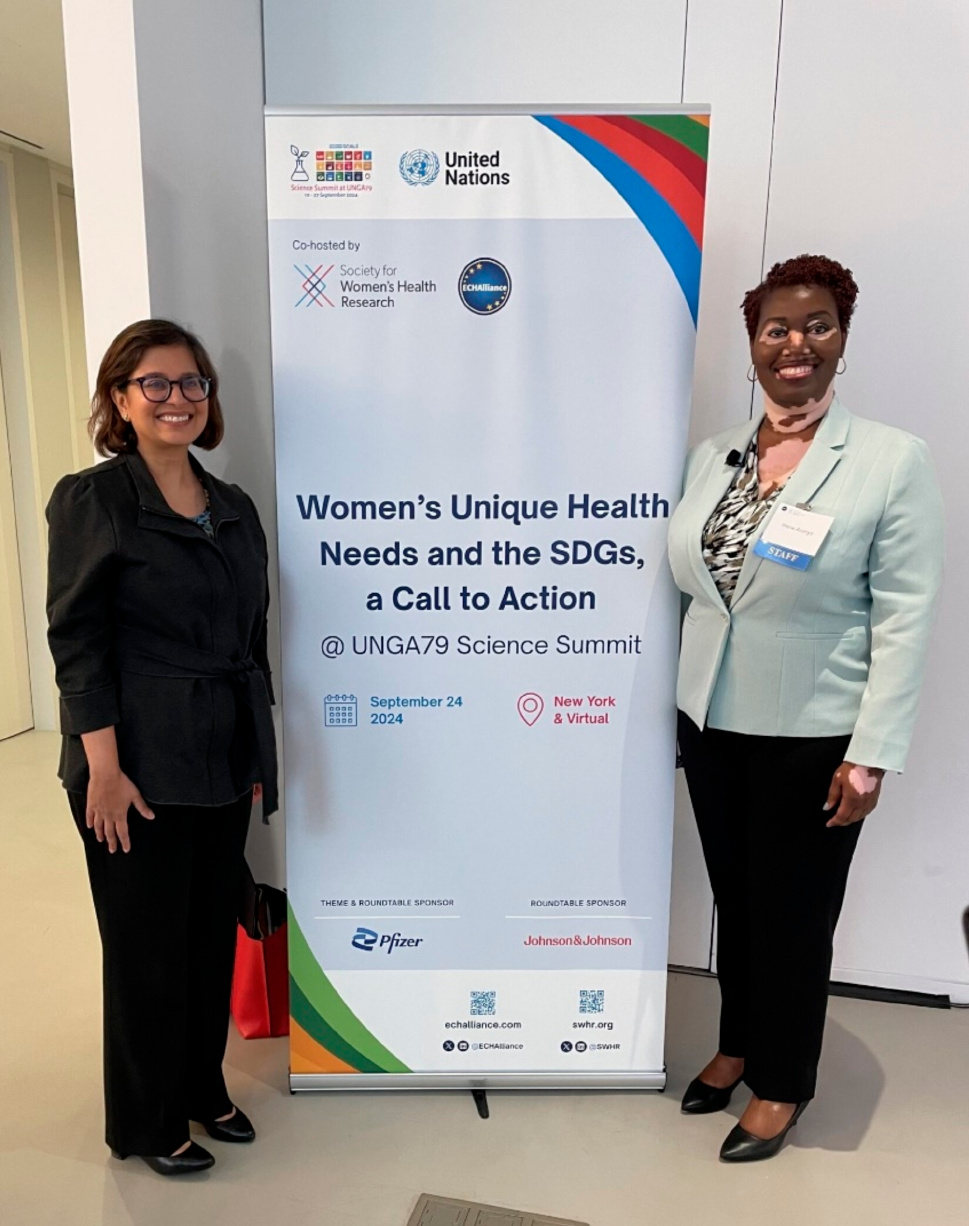
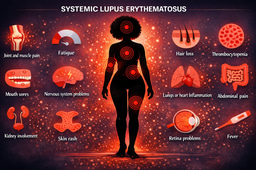


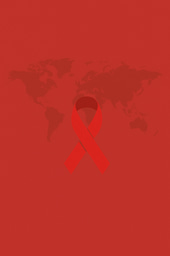

Please sign in or register for FREE
If you are a registered user on Research Communities by Springer Nature, please sign in